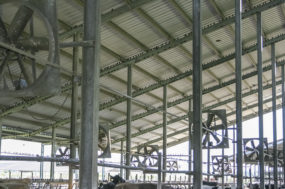I realized recently that there are uncommon courtesies that some people do naturally that make the world a better place to live. Uncommon courtesies are acts of anonymous kindness that make strangers into friends and make family feel like royalty.
Years ago, my phone rang at 5 a.m. I had just kissed my husband and closed the door, sending him off to work. The voice on the phone was my husband’s boss. I told him my husband had already gone.
“I don’t want to talk to him,” he said, “I want to talk to your daughter. I need a flag person today.”
“Oh, I’m sorry. She is planning to go to Phoenix today. She will not be available.”
The disappointment in his voice brought out my mother-to-the-rescue instincts. Before I thought about what I was doing, I had volunteered to take my daughter’s place. Anybody can be a flag person. How hard can that be?
“Be in Heber at 7:00.” He hung up the phone.
“Now what have I done?” I asked myself. I had seen those flag people all droopy and sweaty holding signs at the construction site. It didn’t look fun. I even wondered if I could stand there all day. My feet would kill me. I might pass out in the heat. I resisted the urge to pick up the phone and call him back when I remembered the desperation in his voice. No, I would not be a quitter on the starting line.
When I arrived in Heber, there were two high school students and me to fill the flagging jobs. The crew boss asked me if I wanted to be a flag person or drive the pilot car. The pilot car sounded like the place for me. “I’ll drive.” I breathed a sigh of relief. At least I wouldn’t faint holding up the sign.
The first trip down the construction site was a breeze. I had a sense of power. Hey, I was the one who could hurry things up, or I could take my time. As the day wore on, however, I became frustrated at drivers who were impatient and got ahead of me. Weren’t those crazy drivers supposed to follow me? “Hey, I’m the leader! Follow me!” I wanted to shout. But nobody cared. I was just there as a fixture on the road. I was just the pilot car.
It grew hot and my back began to hurt. I was miserable about two hours before closing. I regretted my hasty decision to take my daughter’s place.
Then it happened. Someone made me the recipient of an uncommon courtesy that changed my entire day. As I drove past the heavy equipment, a man tossed an ice-cold Pepsi into the cab of the pickup. “Compliments of James,” he smiled.
I had no clue who James was, but he had given me a gift. I am not a Pepsi drinker, and sugar makes me grouchy, but I accepted the gift for James’ sake. The cold Pepsi rolled against my leg on the seat for two more rounds before I decided what to do with my gift that would do the anonymous James justice.
I noticed the flag person on the far end of the construction site. He drooped from the heat but tried to be cheerful despite the pain written across his face. I knew his feet hurt. I tossed him the Pepsi and said, “Compliments of James.” The smile I received for my secondhand kindness made me shiver with joy. It was as if I had been the original benefactor.
Uncommon courtesies can happen anywhere. I was at my daughter’s “Spring Sing” concert at Eastern Arizona College. I was impressed with the spectacular performance and brought to reverent tears as the conductor, Dr. Lunt, gave each of his hundred or more performers a red rose. I was in the midst of smiling through my tears when one of those young men performers smiled at me and said, “This is for you.”
I was a stranger in a crowd of hundreds, yet this young man reached beyond common courtesy to make me soar with joy and love. I blubbered my thanks. I couldn’t possibly tell him how much his act of kindness meant to me. Soon he was lost in the crowd. I don’t know his name, and if he saw me again, I don’t think he would remember his deed, but I will remember. Uncommon courtesies are hard to forget.
There are other kinds of uncommon courtesies that happen every day.
I remember every time I asked my dad if I could use his vehicle, he jumped into action. He checked the oil and made sure all parts were running properly. He even filled the tank to the top with gas. Now that is uncommon courtesy.
A few weeks ago, my husband and I traveled on an airplane when the mask mandates were the hottest. We had left home in the early hours of the morning and weren’t sure where we were going when we arrived at the busy Sky Harbor airport. It was still dark, and we were running late. We asked a man for directions, and he could have spelled out the intricate directions and went on his way, but he smiled and said, “I have a later flight. I’ll take you there.” And he did.
Later we realized we had forgotten our masks in the car. We were fumbling with the mask vending machine when a girl stepped up behind us. “Do you need masks? I have a bunch of them; I’ll never use all of them.” She smiled and handed us her masks. An uncommon courtesy even at the airport.
Over the years, I have learned that it is uncommon for the media to publish anything that resembles courtesy. It seems the negative stories get all the press, but I am glad to find stories on Facebook that accentuate the kind deeds of those who have paid for someone’s groceries, policemen who changes tires instead of issuing tickets and teens who help the elderly. I am overjoyed to see people who unselfishly set up GoFundMe accounts for the needy or build houses for veterans. Those uncommon courtesies are like rocks dropped in a lake – the ripples go on and on.
The ultimate example of uncommon courtesy was Jesus Christ himself. He spent His life doing good. He brought the only son of a widow back from the grave. He healed the blind, the leper and the lame. He fed a hungry five thousand and wept with those who mourned. He forgave sinners and taught the humble seekers. His uncommon courtesy continues today. He lifts those who have fallen to the depths of despair and teaches those who seek His guidance.
We don’t have the power to do what He did, but we have the power to be kind.
We can look for those moments when we can show uncommon courtesies. They are to be found everywhere. The parking lot, the freeway, even your own kitchen. Next time you pick up a piece of trash you didn’t throw on the ground, know you are performing an act of uncommon courtesy. If you see an extra shopping cart loose in the parking lot and you push it into the slot with your own shopping cart, that is an uncommon courtesy. If you give your place to a stranger in the checkout line, you are guilty of performing an act of uncommon courtesy. If you do more than your share without asking for a reward, yes, that is an uncommon courtesy. Even if you tell someone at the gas station that he/she has left the gas cap on the top of the car, you are guilty. If you smile at someone who is having a bad day, you have sent a ripple of kindness into the universe.
The wonderful thing about performing an uncommon courtesy is that it makes you feel uncommon. It makes you feel that others are uncommon too. You might even say you are a little more than human. You are closer to the angels. Go ahead, do it. You’ll be glad you did.




